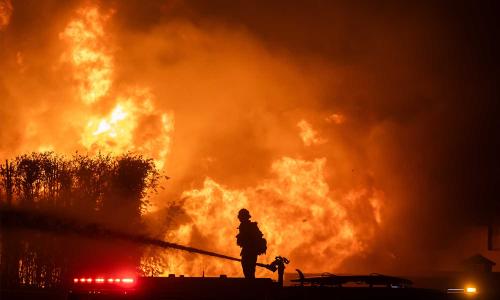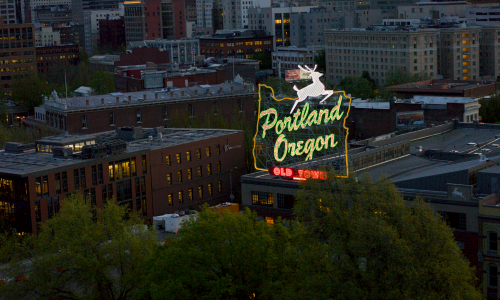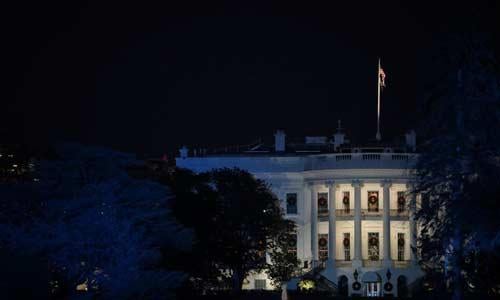At sunset on September 29 at One Greenway, the Boston Chinatown Neighborhood Center (BCNC) and the city’s Asian Community Development Corporation (ACDC) hosted the projected voices, words, and images of Chinatown residents speaking about displacement, immigration, climate change, and community, as part of an art installation titled With/Out Water.
With/Out Water’s creator is Yu-Wen Wu, a visual artist based in Boston, and one of 2018’s Art for Science Rising grant recipients. An initiative of the Union of Concerned Scientists, Art for Science Rising has awarded $10,000 to each of six artists to create public art that highlights the role science plays in protecting our health and safety.
“I wanted to address current issues through contemporary art to the members of this community—many of whom are immigrants,” Wu says. “Art can present large concepts, such as love and war, or in this case climate change, in a way that individuals and communities can consider and act upon.”
Wu’s video projections were created with the collaborative support of the BCNC Pao Arts Center, ACDC, and Chinatown residents, whom she interviewed for content. She says the responses she received touched on air quality, flash flooding, increased storm frequency, and other environmental concerns. The videos were projected onto the inside walls of five tents in the park at One Greenway. “We camp to experience the beauty of nature, and experiencing nature heightens awareness of environmental fragility,” Wu says by way of explanation. “And the temporality of tents speaks to displacement, homelessness, and fleeing.”
Boston is a coastal city projected to experience 1.5 feet of sea level rise by the middle of the century. Several storms in the last year alone have sent ocean water flowing through its streets. Boston is also in the top 10 most expensive US cities to live in, with a dire shortage of affordable housing and stark income inequality. Wu, whose family immigrated to the US when she was a child, says she hopes her work will help draw attention to the ramifications of climate change for all Bostonians, and particularly Chinatown residents, including recent immigrants for whom this issue is understandably not top of mind.
“They’re worried about jobs, they’re worried about being able to afford a place to live, they’re worried about their children’s future,” Wu says. “I feel it’s never too early to have this conversation. I think that understanding this issue, and asking for mitigating measures as Chinatown undergoes planning and housing crises, is really important.”
The exhibition of With/Out Water closed out Experience Chinatown, an all-day event at the Pao Arts Center—which included discussions about environmental concerns, and workshops. Wu says her work fit right into the themes of the day.
“The Chinese culture has a tradition of respect and love for the landscape,” she says. “You see it in the literature, poetry, and paintings. I'm hoping we can become more mindful of the issues and the challenges ahead.”
Artist’s statement:
Displacement of people and communities due to the adverse effects of climate change is a current reality, and expected to increase in the future. With/Out Water is an outdoor multichannel video installation bringing attention to these issues. The videos are projected onto the walls of tents symbolic of temporary shelters.
The installation is on a site where the state displaced hundreds of predominantly Chinese and Syrian immigrant families in the 1960s to make way for a highway. Working with Boston’s Asian Community Development Corporation (ACDC) and Boston Chinatown Neighborhood Center (BCNC), the words and images of Chinatown residents speaking about immigration, environmental concerns and community is an aspect of the installation. Projections show that Boston’s rising waters will adversely affect this community, and With/Out Water brings discussions of this and other environmental challenges to the forefront.



